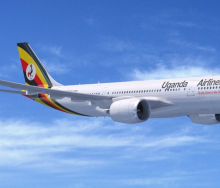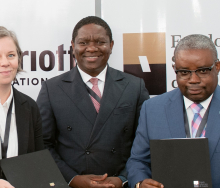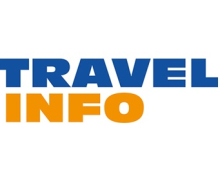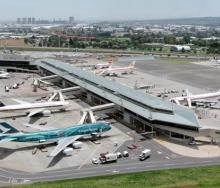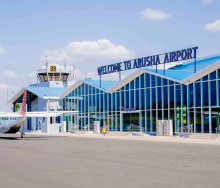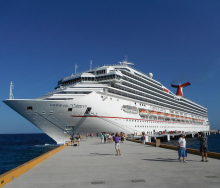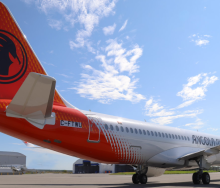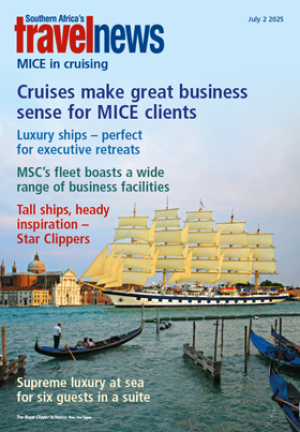NEGOTIATING
corporate preferred
airline agreements
has become a lot more
difficult in an increasingly
consolidated airline industry,
according to recent Egencia
study, Corporate Travel in the
Consolidated Skies.
The study shows that
the number of carriers has
declined dramatically over
the last 20 years as a result
of airline consolidation.
In this post-consolidation
era, with fewer airlines
and fewer empty seats,
it is harder to find deep
discounts and disturbingly
easy to lose negotiated
rates. If companies fail to
deliver the load share that
they promised, airlines
are cancelling contracts,
sometimes as early as 90
days after being signed.
And South African agents
are feeling the pinch.
Jim Weighell, corporate
manager of Sure Travel,
says airlines are getting
better at enforcing
contractual terms, with
a better handle on profit
objectives and associated
reporting. “I think airlines
are looking to apply greater
discipline in enforcing the
terms of contract where
airfare discounts are being
negotiated. Improved
management information
allows carriers to monitor
performance more closely.
Historically corporations
have wittingly or unwittingly
provided ‘inflated’
traffic estimates, which
significantly affect regional
airline budgeting,” he says.
Club Travel has also found
that airlines have become
more discerning in renewing
agreements. Collin Austin,
business development
executive, says: “Airlines
definitely look at the
figures from the previous
agreement and, if those
figures are not showing
a return on investment,
they sometimes decline to
renew.” Collin adds that in
this market suppliers are
still very interested in the
corporate business simply
because the yield from this
sector is still higher than
the average yield.
Ben Langner, md of
Carlson Wagonlit Travel,
agrees. He says although
airlines have become
increasingly selective about
corporate agreements
and stricter about support
requirements, it is an
opportunity for TMCs to
assist corporate clients
in negotiating airline
agreements relevant to their
business travel needs.
Mark Hollyhead, Egencia’s
senior vp for the Americas,
says the increased pressure
for companies to deliver
bums on the seats of
preferred carriers has
shifted the focus more to
the TMCs to manage and
sort air preferences and
ensure business travellers
choose the preferred
carrier. “To maximise air
contract discounts, it will be
increasingly important for
corporate travel managers
to make travellers aware of
their preferred carriers and
to ensure these air partners
appear at the top of their
booking displays.”
Mark says although the
fundamentals of travel
management haven’t
changed, the ability to
manage air preferences
should. “A 21st century
TMC should be able to
attractively display clients’
preferred choices within the
booking tool, with integrated
approvals and real-time
reporting on compliance.
The ability to control ‘sort
order display’ should be
in the hands of the travel
manager to act quickly and
adjust when necessary.”
Jim argues, however,
that companies meet
targets where compliance
is mandated and enforced
within the company’s HR
policy from the top down.
“Unless this discipline is in
place, it is very difficult for
the TMC to enforce policy,”
he says, adding that the
key to cost saving is for the
company internal protocols
to set the parameters
for acceptable booking
behaviour. The TMC can,
however, advise on the
‘best-fit’ policy relative to
the company’s objectives
and culture, he says. “Selfbooking
tools are useful in
this regard as they provide
real-time reporting on
bookings and behaviour with
detailed reporting.”
Collin agrees that a lot
depends on the corporate’s
travel policy. “Very few
corporates have really tight
policies where we have to
use a preferred supplier
exclusively but a really good
agreement will drive itself.”
He adds that the TMC can
help companies set up solid
corporate agreements. He
says a TMC can arrange
a cluster deal for SMEs,
where they wouldn’t be able
to obtain corporate deals
individually. By grouping
several SMEs together, a
corporate deal can often be
achieved, he says.
Consolidation is hurting preferred agreements
12 Apr 2017 - by Dorine Reinstein
Comments | 0

